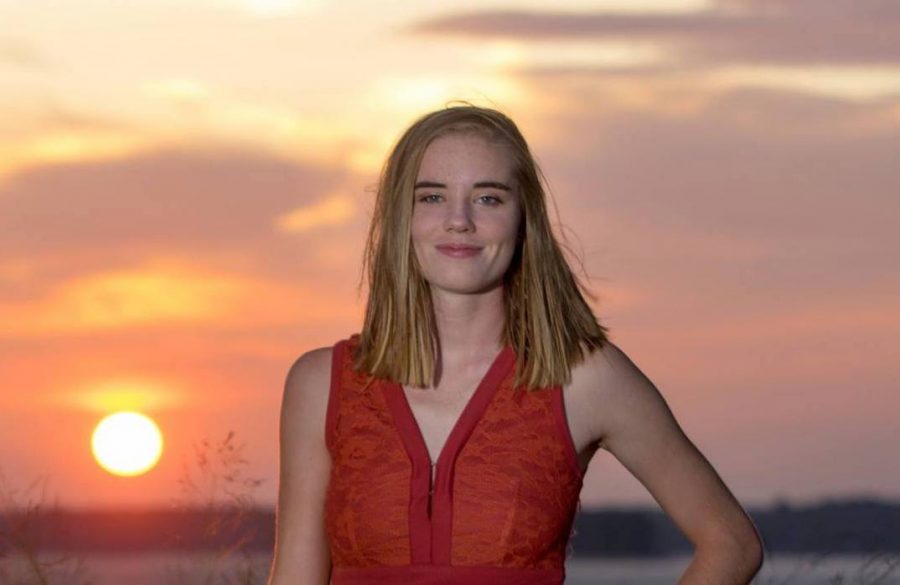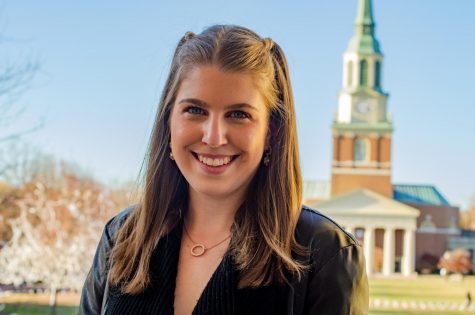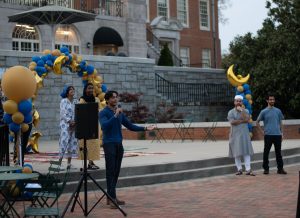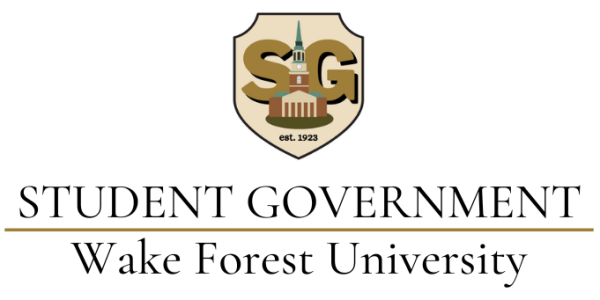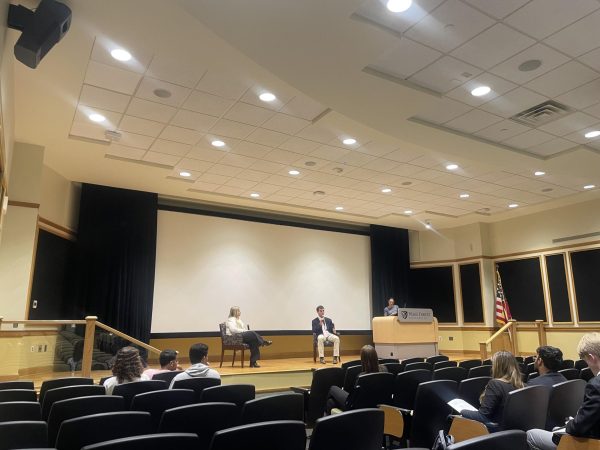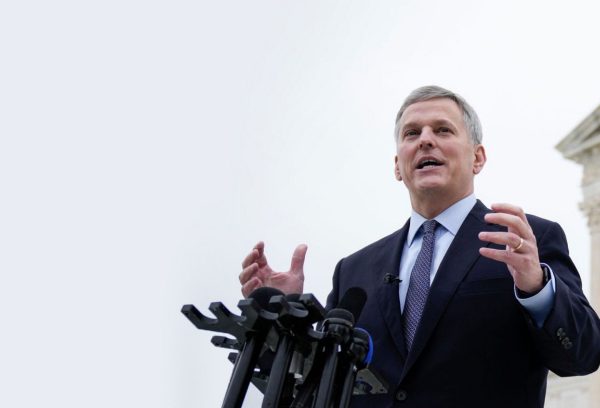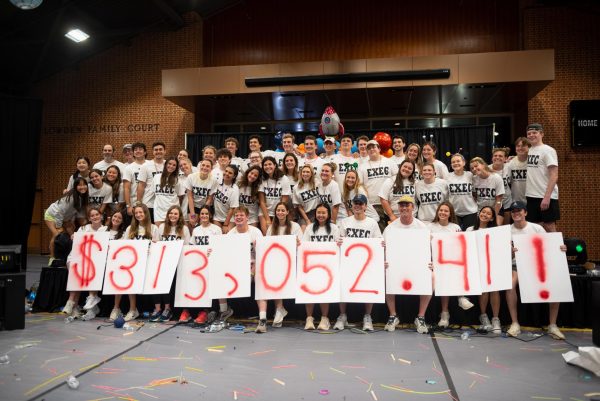Deacon Profile: Anna Price
April 22, 2021
Anna Price is a junior from Hendersonville, N.C. who is majoring in psychology and minoring in linguistics. Price currently serves as the sustainable consumption intern in the Office of Sustainability. She works to increase social awareness regarding sustainable consumption through engagement with student organizations. Currently, Price is working with the Office to provide low waste toiletry products in the campus Pods.
How did you obtain your position as the sustainable consumption intern?
I spent my freshman year in Denmark with the Copenhagen Global Awakenings Program, where I took a sustainability class. On a larger scale, Copenhagen is a very important city in making progress towards sustainable living. We had this class as an academic component, but there was also this huge cultural component of learning about sustainability just simply by living in Copenhagen.
When I came to the Office of Sustainability, there were several of us doing waste reduction and management. I created this new position that was about waste diversion on the front end, which is what I do now. Basically, you apply for an existing position or you can create one, and this is one I created with the Office.
What types of projects do you work on?
This is my third semester working with the Office. The first semester was a lot of talking to people, asking where they notice they are most wasteful in their life and finding out what really bothers them. If you build off of what people already have in mind, you’re going to get a lot further, especially when you’re talking about behavioral changes. Food waste is the biggest one people will talk about, but it’s kind of inaccessible, so we settled on toiletry items as the next most accessible thing. So that second semester — the COVID-19 semester — we started developing educational material. We started talking to people, but we weren’t doing a lot of outreach, so it wasn’t working very well. This spring, a lot of that changed and we started getting some traction, which was really nice. We matched up with all of these different student organizations and presented to them.
The second thing we did was a social media challenge, which was really fun. It actually just ended. We had people post every day, mostly what items they are interested in and what items they already use, and just tried to increase social awareness, so that’s a good way to build community.
The third thing we did, which was the most applied and infrastructural project, involved working with Harvest Table and all the Pods on campus. Hopefully, in late April we will have sustainable or low-waste toiletry items in the Pod.
How do you measure changes in people’s behavior?
My whole job is behavioral change. There are different stakeholders for every internship position that pays for them to be there. You have to validate how you are going to show progress. So, it has sort of changed. At first, it was simply engagement, because other than a self-report survey, you couldn’t really measure behavioral change.
This semester, we had some more options. We could measure engagement but then also follow up three semesters later and ask people if they have actually changed anything. Have you changed the way you’re thinking or the way you are purchasing things? I have to wait until you have run out of something and encourage you to choose a more sustainable replacement for it, so that takes time. We are finally getting that data back, but it’s still hard because a lot of it is people sort of guessing.
What inspired you to begin this work?
Late in high school, I went to Costa Rica, which is a really big hotspot for environmental action. I was in Costa Rica learning about sustainable agriculture, and that’s sort of when I started thinking about the consumption side. ‘What am I eating? What is the water footprint? What is the gas footprint?’
Being sustainable is trending at the moment, which is very helpful. People want to have that conversation. In Copenhagen, there was a lot of conversation about where your clothes were coming from, and what produce was more seasonal. Inherently, you started thinking about sustainability a little bit more.
I think because I was in the sustainability class, I started reading news stories and podcasts about how the movement was coming into America and how that adjustment was going to look. I started reading about these companies in New York that were zero-waste stores. I thought, ‘what if we applied that at Wake Forest?’ If we prove there is enough of a demand, we could have an entire Pod that is stocked with low-waste products.
What makes this work important?
Student life is a really interesting opportunity for change because there is a huge community and we can collectively make decisions together. We’re never again going to be in a place where there are so many people thinking and making the same decisions we are. It’s a huge opportunity for us as a community in which we can choose to make these small changes that, altogether, would make a big difference on the world around us.
Do you plan to incorporate this work in sustainability into your future career plans?
I hope so. I think as a junior, I can rationalize a lot. Ultimately, the answer is yes. There’s not a ton of people doing environmental psychology at Wake Forest, but it’s definitely something I’m interested in. I’m in a senior psychology class called Judgement and Decision Making (PSY 374) right now, and it’s all about why people are illogical. The class explores questions ranging from why people aren’t following COVID-19 guidelines, to why people aren’t passionate about the environment, and why people aren’t doing something. That’s very fascinating. It’s not something I have a ton of resources to build a resume in at the moment, but with graduate school, it could definitely be something I might pursue.
I think opportunities in sustainability should be for everyone. I think it’s very scary and very sad at the moment, the way it’s portrayed in the media, but there are a lot of solutions. There are a lot of new jobs, and there is a lot of need for more honest portrayals in the media. We need film majors and politics majors, too. Everyone should be excited about sustainability. It should not have to be your career.
What are some suggestions for people to be more sustainable in their lives?
Reducing waste is always the first one. Anything you can do to reduce anywhere is good. Buy less and as you’re buying stuff, do your homework. It takes some time, so what I tend to do is just pause. If I haven’t had the time to do the research on clothing, I’m not going to buy it right away. I’m going to wait until I’ve thought it through and had the time to actually do that homework. Secondhand clothing is not a perfect system and neither is recycling, but those are all improvements over the norm. Shop secondhand, recycle wherever you can and compost wherever you can. It’s not going to fix the whole problem, but as an individual, you can only do so much.
Editor’s Note: This interview has been edited for brevity and clarity.


